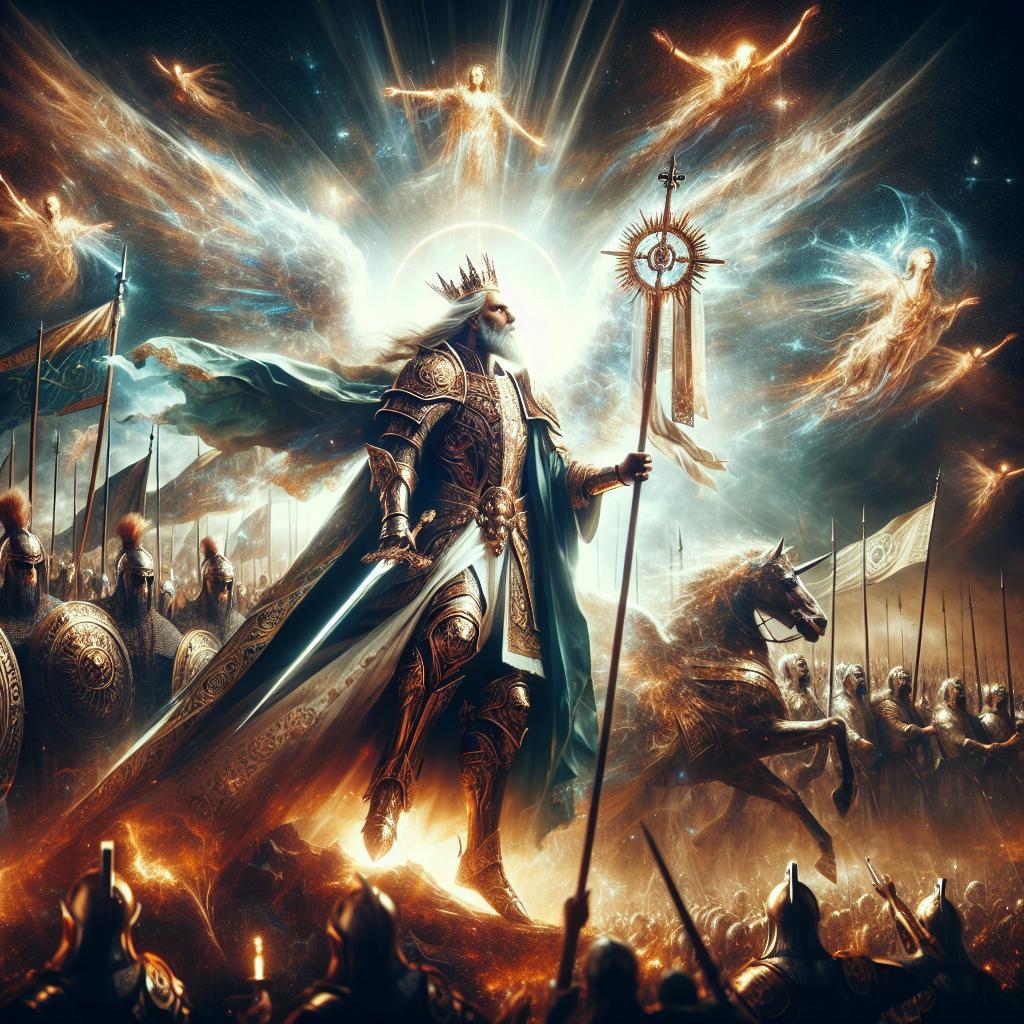
Unveiling the Ultimate Guide to Holy War: A Call to Arms for Christian Warriors
Published: 10 August 2024
Holy War: Debunking the Misconception
Many people mistakenly believe that the opposition to Darwin's theory of evolution comes solely from conservative Christians. However, when we delve into historical accounts, we find that the reality is quite different. In fact, many scientists, including prominent figures like Sir John Herschel and James Clerk Maxwell, held strong reservations about Darwinism. Even religious individuals of Darwin's time were supportive of his theory. Let's explore this further.
The Scientific Opposition to Darwin
Contrary to popular belief, it was not primarily religious individuals who opposed Darwin's theory. In fact, esteemed scientists like Sir John Herschel and James Clerk Maxwell were vocal critics of Darwinism. They held deep reservations about the scientific validity of his ideas. William Whewell, a renowned science philosopher, even barred Darwin's book from the Cambridge library.
These scientists were not alone in their skepticism. Geologist Adam Sedgwick, who taught Darwin field geology, expressed his disagreement with the theory in a letter to Darwin himself. Sedgwick found parts of the book false and harmful. Richard Owen, superintendent of the British Museum's Natural History Department, went as far as coining the term "dinosaur" but strongly opposed Darwin's work. It becomes evident that it was not just angry reactionaries but respected scientists who questioned Darwin's theory.
Religious Support for Darwin
While scientific opposition to Darwin was prevalent, it is important to note that there were also religious individuals who supported his theory. For instance, preachers like Kingsley and Josiah Strong congratulated Darwin on his publication and even saw a compatibility between Scripture and evolution. Frederick Farrar, James Orr, and Henry Drummond were other famous preachers who praised Darwin in the British Isles. In America, A.H. Strong and Henry Ward Beecher championed evolution as a valid idea.
Even after Darwin's death, he received accolades from the churches. The Church Times praised Darwin's virtues, describing him as a "true Christian gentleman." When Darwin was buried in Westminster Abbey, religious individuals remarked that his body was already hallowed. The Times even reported that Darwin's presence brought increased sanctity and reverence to the Abbey. These accounts highlight the support Darwin received from religious circles.
Why This Matters
The misconception that opposition to Darwin's theory originates solely from conservative Christians oversimplifies the complex history surrounding this scientific debate. It is crucial to recognize that there were eminent scientists who raised legitimate concerns about Darwinism. Additionally, religious individuals supported his ideas, seeing no conflict between evolution and Scripture. Understanding this broader context helps us appreciate the diverse perspectives within the scientific and religious communities.
Think About It
It is worth considering why some scientists opposed Darwin's theory while others embraced it. Reflecting on this divergence of opinions can deepen our understanding of the complex relationship between science and faith. Furthermore, it challenges us to critically evaluate scientific theories and engage in respectful dialogue, acknowledging that differing perspectives exist even within our own belief systems.
In conclusion, the notion of a holy war against Darwinism is a mischaracterization. While some Christians did oppose his theory, many scientists were skeptical of its scientific foundations. Conversely, numerous religious individuals supported Darwin's ideas. By acknowledging this diverse landscape of opinions, we can foster a more nuanced understanding of the historical context surrounding the debate over evolution.
